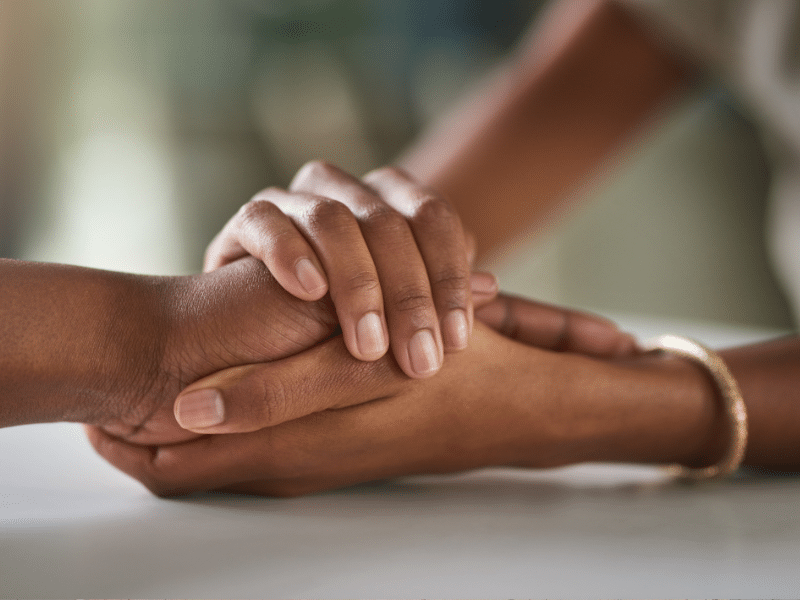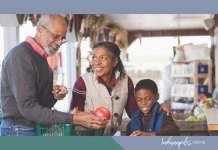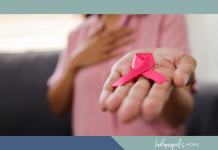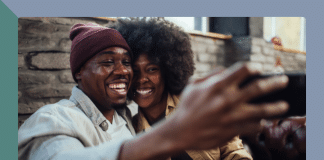 As a breast cancer survivor, I’m often asked by people with newly diagnosed friends, family, or colleagues: “What can I do to support them?”
As a breast cancer survivor, I’m often asked by people with newly diagnosed friends, family, or colleagues: “What can I do to support them?”
Honestly, there’s no easy answer to this question because there are so many variables. Are you close to this person, or are they more of an acquaintance? Are they newly diagnosed with their head spinning, years out from active treatment but still struggling, or somewhere in between? Are they vocal about their fight, or do they prefer to keep a low profile? All of these factors come into play because what feels like support to one breast cancer patient could feel like a burden to another. Therefore, the key is keeping the breast cancer patient – and not your feelings – the focus of whatever you do.
With that as the foundation, I decided to ask my network of breast cancer fighters what advice they would give on how to best support someone battling the beast. With the repeated caveat that it all comes down to personal preference, here are a few ideas.
-
Meals Trains That Don’t Involve (Only) Lasagna
Listen, I felt my tiny Italian grandmother yell at me from the great beyond as I wrote that header because it is a universally acknowledged truth there is no food more comforting than pasta. And everyone I talked to loved being supported with meals because it eased a burden when both physically and emotionally exhausted from treatment.
So, meal trains? Absolutely. Meal trains consisting of 90% lasagna or other red sauce-based noodle dishes? A grateful but firm no. Not to sound unappreciative, but we got SO. MANY. LASAGNAS. (Some were still in our freezer long after my hair started growing back.) I encourage you to ask the person/family what sounds good or consider doing something simple like a rotisserie chicken, salad, and side dish. You could also utilize a meal train website that lists the family’s preferences and shows what other people are contributing. Or, if all else fails, give the cancer fighter gift cards to DoorDash, Instacart, or their favorite grocery store (all hail Trader Joe’s!).
We just humbly ask you to do whatever it takes to make sure no one is drowning in red sauce.
-
Gift Cards for Products and Services
While some may think gift cards are impersonal, most of us loved getting them for massages, home cleaners, or even fun social activities. While in the depths of active treatment, your days are built around doctor’s appointments, medicines, and naps. However, stepping away from the cancer grind – even if just for a few hours – reminds you there’s still life to live outside of being a cancer patient.
Also, beyond the cost of treatment itself, other aspects of being a cancer patient can add up financially. (Don’t worry. I’ll save my rant about America’s healthcare system for a different day.) During chemo, some of us purchased wigs, which are extremely expensive. Post-mastectomy, many of us bought specific pillows, specialty bras and clothing, a closet full of oversized button-up shirts (because you can’t lift your arms for a while after surgery), and tops with drain holders. With radiation, there are creams and treatments to help with burns that aren’t covered by insurance. In light of all this, a gift card to a website or local shop specializing in cancer products and services (like Barbara’s New Beginnings or FigLeaf Boutique in Indianapolis) can help ease the financial burden.
-
Thoughtful, Personalized Gifts
At the risk of again sounding really ungrateful, I want to clearly state it is always the thought that counts when it comes to gifts. Blankets, teas, slippers, and coloring books are lovely. But, like the saga of the lasagna, breast cancer fighters tend to get these in abundance. What really stood out were the personalized gifts that reminded us how much we (and our families) were loved as people.
For example, my college friends created a “Boost Box” where each contributed an encouraging or funny note with a small, wrapped gift (like a mini beer pong set, pictures colored by their kids, or fancy baking spices). Any time I felt particularly down, unwrapping one felt like a warm hug of comfort. Eight years later, it is still the best gift (other than my husband and daughter, of course) I’ve ever received.
Others mentioned tickets to concerts and sporting events, fancy lotions or bath products they would never buy for themselves, gift certificates for “free” babysitting when they needed a break, and even gifts for their kids that recognized mom’s diagnosis was hard on them too. Basically, we all loved anything that showed the giver was thinking about us as people and not just a disease.
-
Your Time
Last but certainly not least, all of the breast cancer fighters I talked to were most appreciative of people who gave their time. This one comes with a huge asterisk that you absolutely need to make sure the person is in the right mental and physical space for company and interaction. But, for example, I know I will never forget my three best friends coming to visit after my mastectomy. I woke up from a nap to find one folding laundry, one cleaning my house, and one mowing the yard. They didn’t ask permission, nor did they want any credit. They just knew I was struggling physically and mentally, and their help gave me and my husband the time and space to focus on healing.
So whether it is sitting with someone during chemo, driving them to a doctor’s appointment, setting up a coffee date, or even just sitting on the couch in silence, having someone willing to join you in “the well of suffering” means most of all.
At the end of the day, every single person I talked to was extremely appreciative of people who made an effort in any way to lend their support (lasagnas included). Because, like many diseases, a breast cancer diagnosis changes your life forever. Whether 10 days into the fight or 10 years cancer-free, the trauma is a part of our stories forever. But so is the love and support we’ve felt and continue to feel from those around us.








